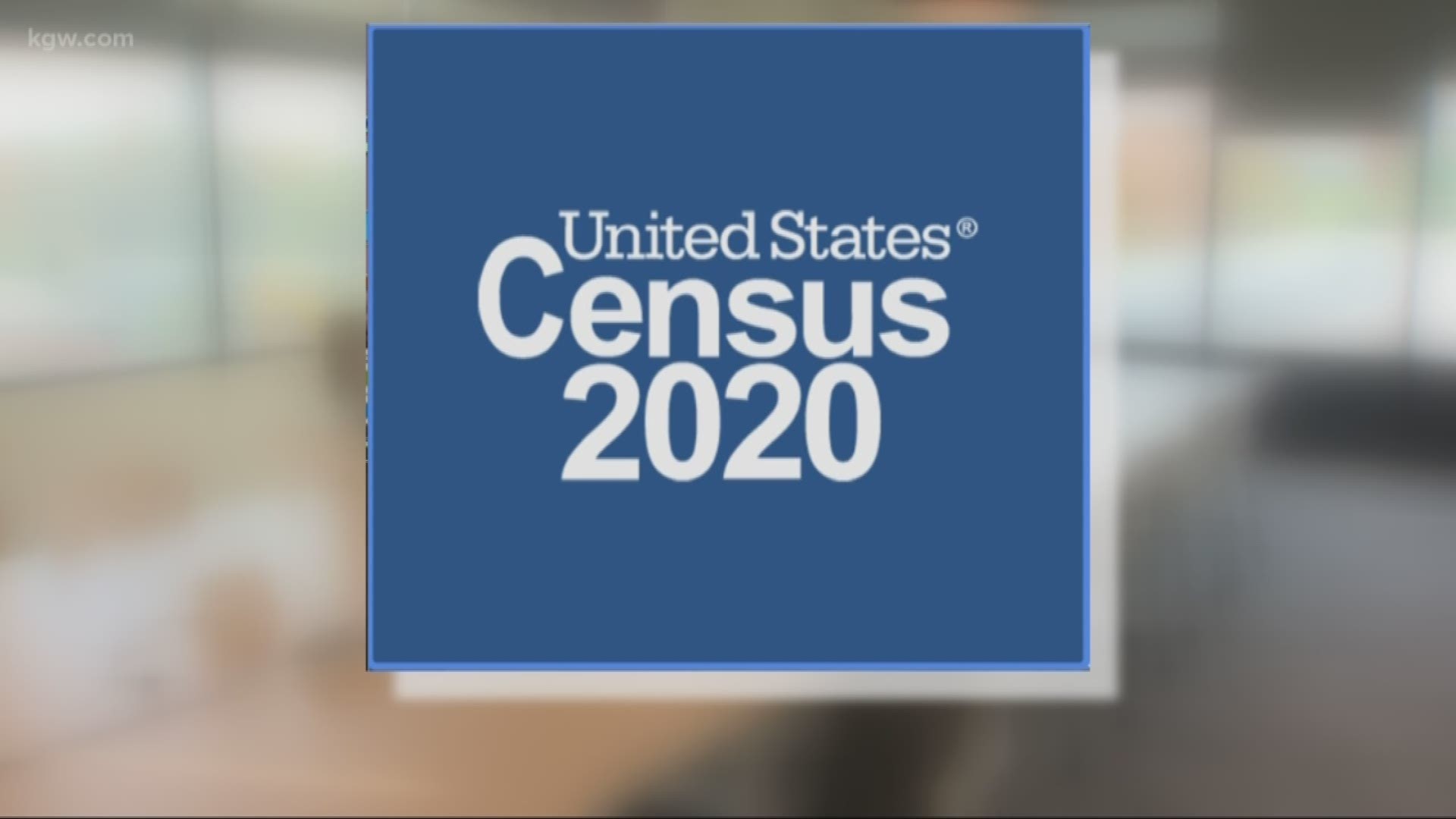PORTLAND, Ore. — With this new year comes a critical count for our communities, one that will shape our future.
In March you'll start getting mail from the U.S. Census Bureau asking you to respond online, through the mail or over the phone to the census questionnaire. It's crucial everyone across the country responds.
Here's why: data from the census impacts our daily lives; it determines representation in congress and it dictates how billions of federal dollars are allocated. Money goes toward roads, housing, schools, and federal programs like Medicaid, WIC, CHIP, and so much more.
In order to reach everyone, the Census Bureau enlists the help of state and local governments, community organizations, non-profits, corporations, health care centers. Partnership specialists are on the ground working to build partnerships in every state in the country.
Oftentimes the very people federal programs help are the hardest to count and are therefore are under-represented.
“That makes it even more important to work on these partnerships and work with trusted leaders and voices in the community,” Portland-based Census Partnership Specialist Marc Azornij said, “So they can be kind of ambassadors for the census and work with us to hopefully alleviate some of those concerns and help folks understand that this is very safe and very important and has a really big impact on the community.”
The hard-to-count populations they are working diligently to reach and educate about the census are immigrants, minorities, people who live in remote, rural areas, seniors and kids under five years old.
Partners provide outreach, educate the people they serve about what’s on the census and why it matters, and dispel rumors.
The Bureau is partnering with Virginia Garcia Memorial Health Center, which serves tens of thousands of immigrants and low-income Oregonians at their clinics in Washington and Yamhill counties.
Virginia Garcia has started educating their staff on the census so they can help patients when the time comes to fill out the questionnaire.
It’s challenging work because much of the population they work with say they're fearful of responding.
“People who might not be here with documents they live their lives behind the scenes and the idea of getting counted in a federal process is very scary,” the foundation’s executive director Serena Cruz said.
“The fear individuals in our community we serve have about participating in the census is that they will be disconnected from their families because this information will get shared with people who shouldn't have it. And that information will be used against them to harm them or their families. And that is beyond unfortunate that's how people feel right now in these times in our community.”
Using personal information from the census and sharing it with any other agency or bureau is not allowed under federal law.
Czornij says your responses are safe and secure and can only be used for statistical reasons.
“The census is safe, it’s easy and it’s important to do. That’s kind of main message,” Czornij added, “We’re working really hard to make connections, build partnerships in immigrant and minority communities and definitely focusing on that message: that the information is safe with us, that it is protected by federal law, that the information shared with us cannot be released to law enforcement or another agency.”
Organizations can still become 2020 Census partners; if you’re interested head to the Census Bureau's partnership page or call Los Angeles Regional Office at 213-314-6500.

